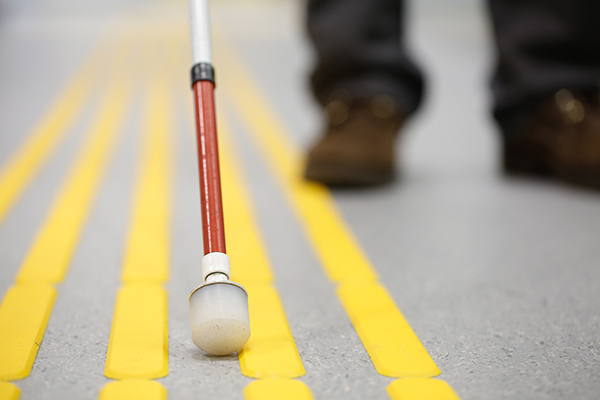Latest News Archive
Please select Category, Year, and then Month to display items
![]()
With the University of the Free State (UFS) academic programme suspended and following guidelines by the UFS Coronavirus (COVID-19/SARS-CoV-2) Task Team to minimise the gathering of people in one place, all UFS libraries will be closed from Friday 20 March to Monday 13 April 2020.
During this time, staff and students will not have any access to the following campus and branch libraries of the UFS Library and Information Services:
• Sasol Library (Bloemfontein Campus)
• Neville Alexander Library (South Campus)
• TK Mopeli Library (Qwaqwa Campus)
• Frik Scott Medical Library (Bloemfontein Campus)
• Music Library (Bloemfontein Campus)
The university community is advised as follows:
• Use Wednesday (18 March) and Thursday (19 March) to borrow books you might need during the long recess. During these two days, students are advised to take precautionary measures and avoid sitting in groups that might compromise their health.
• During this time, all due dates for borrowed material will be automatically extended, no late fines will be charged, and patrons can return material when libraries reopen.
• Please make use of the ‘Ask-a-Librarian’ service for any assistance you might require (go to the UFS Library and Information Services website – click Library Services – click Ask-a-Librarian); OR use the UFS Library social media.
• The UFS Library and Information Services will also be available on a new ‘LiveChat’ service accessible here (listed under Resources – LibGuides). With this service, you can connect ‘live’ with your information librarian.
• All planned activities for the South African Library Week are postponed until further notice.
Tactile paving assists visually impaired
2017-10-28

Tactile paving is being installed at pedestrian crossings to assist
visually-impaired persons at the UFS.
Photo: Supplied
Crossing roads and accessing buildings has always been a challenge for people with visual impairments. They had to rely on peripheral sounds, such as car brakes and cues. However, after the installation of tactile paving – paving with special textures assisting the visually impaired to feel the difference between walking around on campus and crossing the road, this will no longer be a problem at the University of the Free State (UFS).
This is one of several developments that University Estates’ Department of Facilities Planning has in the pipeline for 2017 in order to ensure that the university attains its key component in providing a high-quality student experience.
Maureen Khati, Assistant Director of Project Management: Facilities Planning, says, “We saw the need to install these paving blocks in strategic spaces, as identified by the Center for Universal Access and Disability Support (CUADS).” She says these blocks will make it easier for people with visual impairments.
Special features designed to aid visually-impaired persons
These installations have special features that will assist those students and employees with limited vision or blindness to navigate through pedestrian crossings and the different campus buildings. The university chose a unique design of tactile paving that focuses on warning and directing those with visual impairments.
UFS eager to improve accessibility and mobility
The university, and all the stakeholders involved in this initiative, are delighted to be embarking on this project and are looking forward to its successful execution. To improve accessibility and mobility, more accessible entrances and exits will be built, effective signage will be installed inside and outside buildings, but the most important aspect is that dedicated seating space will be made available in lecture rooms for special-needs students.
Khati says, “More focus has been put on installing ramps in all buildings to make them more accessible for people with disabilities, as well as other needs required to enhance accessibility at the UFS.”
For the UFS, this initiative is one of many to come, as extensive research is being done and priorities are implemented accordingly.